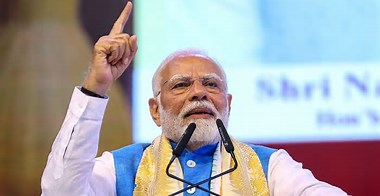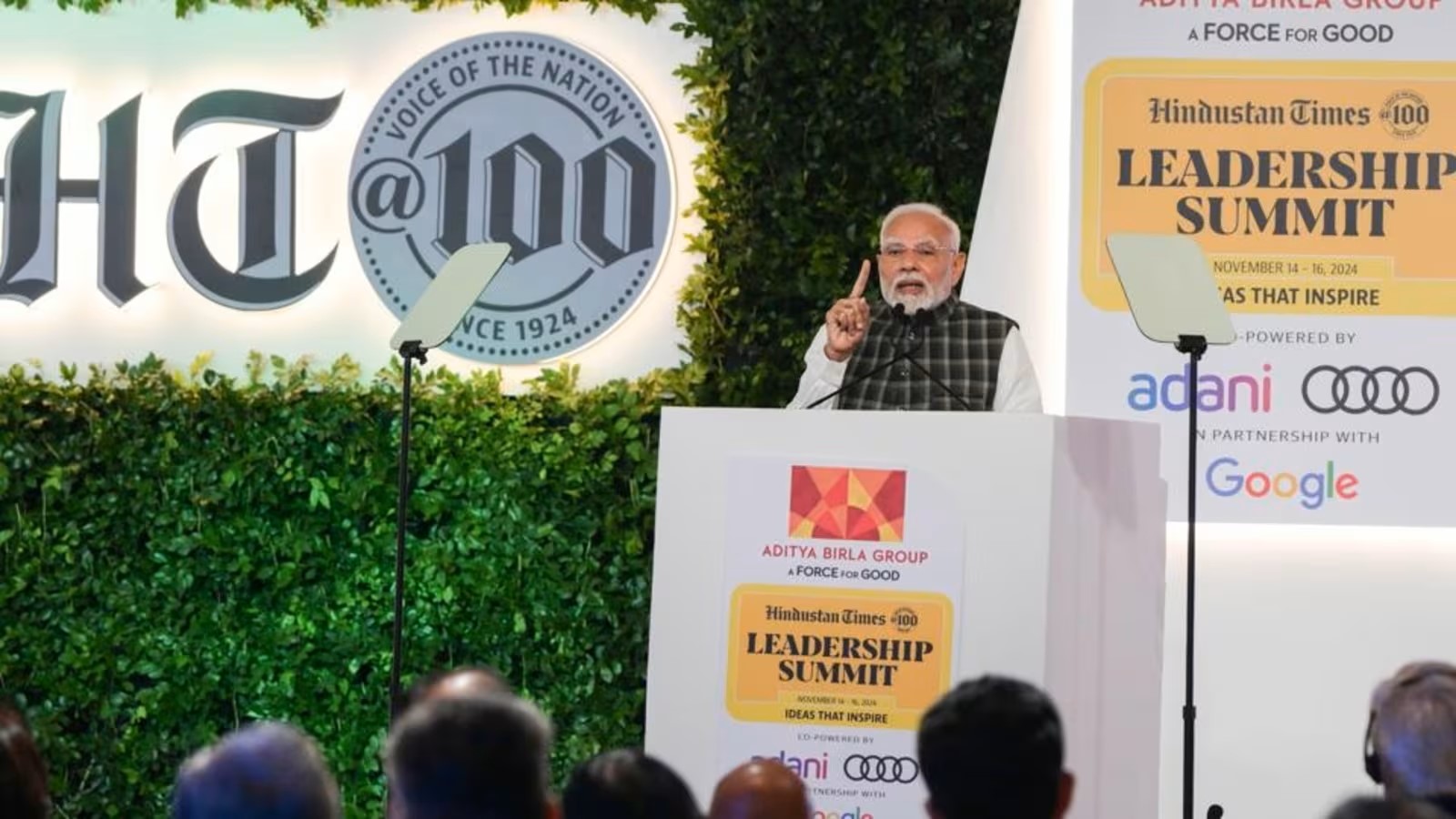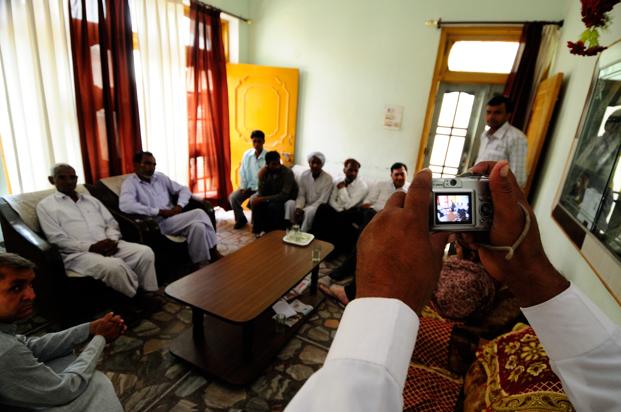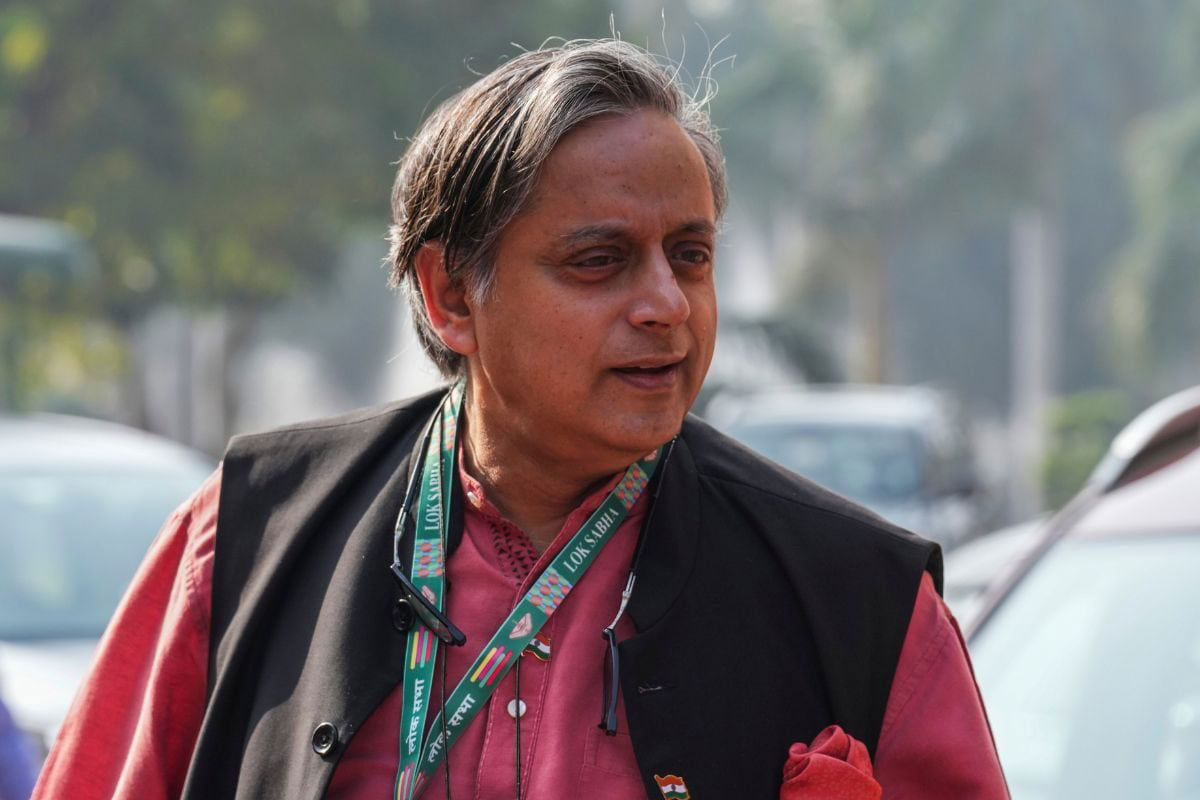Prime Minister Narendra Modi, delivering the keynote address at the 22nd Hindustan Times Leadership Summit (HTLS) on Saturday, shared his vision for India’s future, emphasizing his government’s focus on public trust, national development, and the journey to make India a developed nation by 2047. Modi highlighted the importance of restoring the belief of ordinary citizens in the government and transforming the nation’s social mindset as key drivers of India’s progress.
 In his address, Modi began by celebrating the centenary of Hindustan Times, which was inaugurated by Mahatma Gandhi in 1924, and released a commemorative stamp to mark the historic occasion. Reflecting on the government’s journey, he outlined the steps taken to enhance public welfare, eliminate vote-bank politics, and give governance a higher purpose.
In his address, Modi began by celebrating the centenary of Hindustan Times, which was inaugurated by Mahatma Gandhi in 1924, and released a commemorative stamp to mark the historic occasion. Reflecting on the government’s journey, he outlined the steps taken to enhance public welfare, eliminate vote-bank politics, and give governance a higher purpose.
Trust in Government and National Progress
Modi focused on how his administration has prioritized public goods and welfare programs, positioning them as essential to India’s development. He argued that the NDA government had moved away from traditional politics centered on vote banks, aiming instead to rebuild public trust in governance.
“We have made a long journey, from the freedom struggle to post-independence aspirations. It’s the ordinary citizens who have shown India the way forward,” Modi said, emphasizing that a nation’s true progress begins when the common people trust the government and work toward collective goals.
He reiterated that the 21st century should belong to India, but achieving that vision would require swift and sustained efforts. “We must work harder, be faster, and build on the incredible energy of our people. We’re on the path to making this century India’s,” he stated.
Investment, Employment, and Development
Modi highlighted several key pillars of his government’s policies aimed at transforming India’s socio-economic landscape, underscoring the concept of “investment for employment” and “development to dignity.” He cited numerous initiatives that have led to tangible improvements in people’s lives, such as the Swachh Bharat Mission (toilets for all), the expansion of LPG connections, and the widespread use of mobile phones and cashless transactions.
“When we took on the mission of building toilets, it was not just about sanitation. It was about dignity, security, and jobs,” Modi said. He also touched on how the expansion of LPG gas connections from 140 million in 2014 to over 300 million today had transformed people’s lives.
“I remember a time when people had to get an MP’s letter to get a gas connection. But today, we’ve invested in the infrastructure that ensures no one goes without,” he added. Modi’s government, he said, has focused on creating opportunities for the people while ensuring the efficient use of resources.
Empowering the People: The Rise of Risk-Taking Culture
Modi also spoke about the shift in India’s culture toward entrepreneurship and risk-taking. He noted that in the past, citizens lacked the confidence to take risks, but over the last decade, his government has empowered the youth and ordinary people to think big. “We’ve seen a boom in startups – over 125,000 now – and the youth in small towns are showing the world what they are capable of,” he said, citing examples of rural entrepreneurs who have transformed their communities.
He also pointed out the proliferation of UPI (Unified Payments Interface) and how it has democratized financial services, giving even small vendors access to digital payments. “Now, a food cart vendor uses the same UPI platform as someone in a luxury car. That’s the power of digital inclusion,” Modi remarked.
The Role of Governance in National Transformation
As part of his government’s broader approach, Modi emphasized the importance of strategic investments in infrastructure, healthcare, and education. He cited the growing Union budget, which has tripled since 2014, and the rise in capital expenditure, which has been directed toward building hospitals, schools, roads, and research facilities.
His administration, he noted, has also focused on plugging inefficiencies and saving taxpayers’ money through schemes like Direct Benefit Transfer (DBT), which has saved India an estimated ₹3.5 lakh crore, and Ayushman Bharat, which has saved citizens over ₹1 lakh crore in healthcare costs.
A Call for Excellence
Concluding his speech, Modi made a strong call for every sector to strive for excellence, urging Indians to aim for nothing less than the best. “We need to improve our processes and products so that they are world-class,” he said, stressing that this mindset should pervade all aspects of life, from construction to education, and even entertainment. He added that media outlets like Hindustan Times have a critical role to play in shaping this vision and holding the nation to the highest standards.
“India has come a long way, but we must dream bigger. The transformation we have witnessed is only the beginning,” Modi said, reaffirming his belief that India’s journey to becoming a developed nation is well underway.
A Vision for 2047
Looking ahead to 2047, the centenary of India’s independence, Modi outlined his government’s mission of making India a fully developed, self-reliant, and prosperous nation, with every citizen contributing to this vision. “When public confidence and self-belief rise, the impact on national development is extraordinary,” he concluded, urging everyone to work together towards realizing India’s potential in the 21st century.




